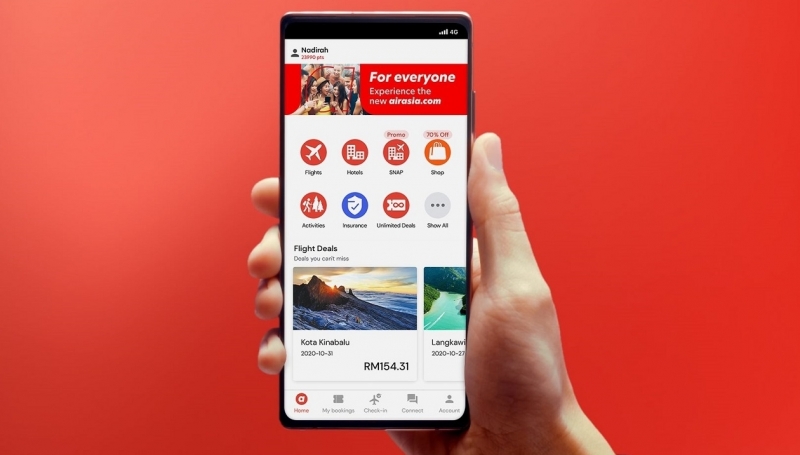The recent COVID-19 pandemic has hit some industries harder than others, such as the aviation/aerospace industry. Looking back at the impact of Covid-19 on the industry, I had the opportunity to hear firsthand from Yizhen Fung, Head of Strategic Partnerships at AirAsia super app, through an insightful session organized by Professor Melati, Assistant Professor of Economics at the Asia School of Business (ASB), as part of the course Platforms, Auctions and Competition through Games.
Leverage the Full Potential of What’s Already There
“We are playing the real game of snakes and ladders because 19 years ago, AirAsia started with two aircrafts which gradually climbed up to a fleet of 280 aircrafts. Now, we are back at two aircrafts flying.” – Yizhen Fung. AirAsia saw the crisis as an opportunity to use the downtime in flying caused by the pandemic to leverage its strength, focusing on developing new non airline revenue streams in the key areas of e-commerce, fintech and logistics.
Yizhen explained the tactics that AirAsia’s leadership team instigated to align the company’s vision, and steer the business, and chart a new technology roadmap during these challenging times, while keeping the people’s morale high. As a passionate strategist, Yizhen shared about how AirAsia utilized data-driven strategies to leverage its digital ecosystem of 75 million users.
The AirAsia super app provides a simpler, faster, and more convenient user experience. The platform features more than 15 different products and services under six main categories including travel, edutech, delivery, health, fintech, and media. “What we’ve done is that we’ve leveraged on our unique assets.
As an airline, we have longstanding business relationships with some of the largest cosmetic companies in the world. Therefore, we were able to obtain great prices for beauty products. In addition, we have thousands of cabin crew and grooming instructors who have a great followership on Instagram.” Yizhen also shared about the secret sauce of how AirAsia Beauty took off by utilizing AirAsia’s current assets and emphasizing inclusivity.
An Always-Nailing Culture
At ASB, Professor Charles Fine and Professor Loredana Padurean have developed and mapped out a framework phrased as “Nailing, Scaling, Sailing”, a concept that highlights the different stages within the entrepreneurial life cycle. As Yizhen affirmed, the culture in AirAsia is always one of “Nailing”, which emphasizes on continuous innovation.
Due to the innovation in non-airline digital businesses, AirAsia’s super app posted a 45% year-on-year (YoY) increase in its revenue to RM10 million in the first quarter of 2021, supported by the solid growth of products and services available on the platform. AirAsia’s super app is now considered one of the region’s top three online travel agencies (OTA).
According to Yizhen, AirAsia is constantly innovating and looking for gaps within the market, with the focus of serving the underserved. For example, AirAsia managed to onboard multiple small, independent businesses on its delivery platform because these businesses are often neglected by other platform players.
She added that without the nailing culture, AirAsia wouldn’t have been able to remain true to their promise of delivering high quality service to the underserved, which AirAsia has accomplished by providing affordable opportunities for flight travel, stay-at-home leisure, shopping, eating, and upskilling.
Conclusion – A Super App’s Future Growth
In just a few years, the creation of super apps have become an emerging trend in many markets. The key strategy to develop successful super apps is to offer convenience and simplicity for customers. Malaysia’s delivery business market is highly competitive and is dominated by popular and established stalwarts like GrabFood and FoodPanda. Serving the underserved and neglected, AirAsia focuses more on small restaurants for its food delivery business.
To add on, AirAsia charges lower commission fee than FoodPanda and Grab, further supporting new and smaller restaurants. Ultimately, the question remains: Will this business model be sustainable in the long run? Yizhen highlighted the market’s healthy growth and traction, confident that AirAsia Food would gain sizeable market share from its competitors in the future.





